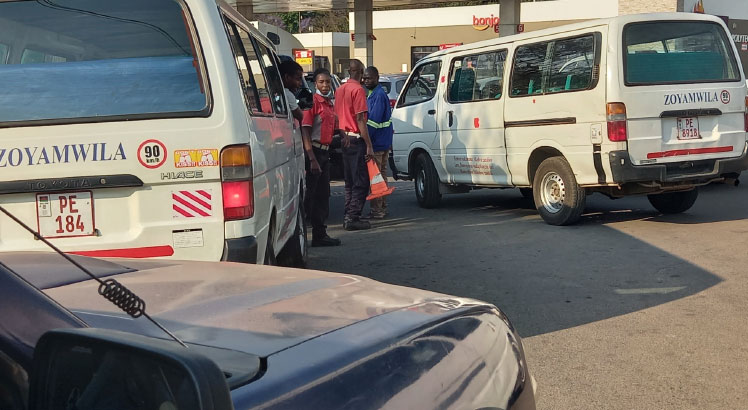Diesel shortage impacts on livelihoods
It never rains, but pours for Malawians as they keep facing one crisis after another and this time they are enduring acute diesel shortages that have negatively impacted on lives.
Diesel is mostly used in big and heavy-duty vehicles involved in the distribution chain as well as construction works. The commodity is also used in standby generators most companies and service providers are using amid prolonged hours of power rationing due to insufficient generation capacity after Tropical Storm Ana damaged Kapichira Hydro Power Station in January, taking off 129 megawatts from the grid.
Spot-checks at several fuel service stations yesterday found long queues with some people indicating that they had been waiting for the commodity for over five hours. In some cases, the diesel would run out while expectant motorists were in the queue.

In an interview, truck driver James Kayambo from Machinjiri Township in Blantyre said the diesel scarcity has affected his business.
He said: “On a good day, I make about K200 000 and that is for four trips. But that is what I made the whole of last week since I was hopping from one fuel service station to another in search of diesel.”
Kayambo’s sentiments were shared by Jonas Banda who drives a mobile milk tanker from Thyolo District to Lilongwe where he delivers milk to dairy companies on behalf of dairy farmers.
“Due to the diesel shortages, last week I even failed to go and collect and deliver milk. My employer understands the situation, but I don’t know if this favours the dairy farmers,” he said.
The frustrations expressed by the two mirror challenges Malawians that rely on diesel are facing.
Thyolo Milk Processors chairperson Tenson Banda said they were forced to dispose of some milk last week which went bad after it was not collected for delivery.
He said while they do not have other alternative sources of power amid the power outages, the daily collection of the milk gives them confidence; hence, the disposal of their milk last week translates to a loss as they charge per litre delivered to dairy companies.
Queues of motorists waiting for diesel have also been causing traffic jams in the country’s central business districts. On the other hand, black market dealers have also been charging between K3 500 to K5 000 per litre for diesel, from the initial pump price of K1 920 per litre.
The current fuel shortages, which have largely been attributed to forex scarcity and disruption in global supply chains emanating from the Russia and Ukraine war, continues to adversely impact Malawians despite President Lazarus Chakwera last week giving an assurance on its availability.
In his address during the 2022 Economist Impact Summit in Lilongwe last week, the President said about six million litres of the fuel would be hauled into the country and that his administration is looking at several alternatives to address the challenge.
According to the National Oil Company of Malawi (Nocma), Malawians on average use 1.7 million litres of fuel in a day, up from one million in 2015.
This means the fuel the President said would be coming into the country would not last for a whole week.
But Chakwera said his administration is pushing to secure $50 million (about K50.5 billion) to normalise importation flow and that it has already secured $28 million (about K29 billion) from local banks for fuel importation. He said the government is also seeking another K50 billion loan facility.
He further said he has since instructed the Reserve Bank of Malawi to prioritise fuel procurement in allocation of any forex Malawi secures.
The President’s address on the fuel shortages came after Nocma and Malawi Energy Regulatory Authority blamed the fuel shortages on hoarding and increased demand due to entertainment events.
But while appearing before the Parliamentary Committee on Trade, Industry and Tourism on Friday, Nocma deputy chief executive officer Hellen Buluma said she could not disclose the current stocks of fuel, saying it is a security issue.





